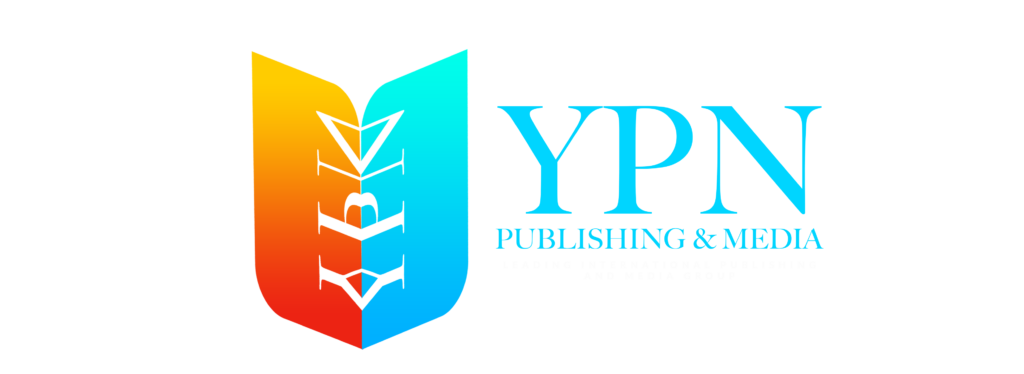If you’re an aspiring author or a seasoned writer, you know how essential it is to have the right tools in your arsenal to make your book-writing journey smoother. Authors are no longer just writers, they are also entrepreneurs, marketers, and designers. With so much on their plate, the right tools can make all the difference in producing a high-quality book that stands out in the competitive market. Whether you’re writing your first novel or preparing a non-fiction masterpiece, the tools you choose to write, edit, format, and design can elevate your work to professional standards. So, let’s dive into the top 10 must-have writing, editing, and formatting tools every author needs in 2025!
1. Scrivener – Your Creative Command Center
If you’ve ever struggled with organizing a complex manuscript, Scrivener is the tool that can help. This powerful writing software is tailored for authors who want complete control over their writing process. Scrivener enables you to break your manuscript down into smaller chunks, making it easier to work on individual chapters, scenes, or ideas.
It also offers features like customizable templates, a built-in corkboard for plotting, and a research area to keep all your notes and materials in one place. Scrivener allows you to switch between multiple views to focus on different parts of your manuscript. You can even export your work in a variety of formats, from eBooks to print-ready PDFs. This tool is ideal for writers who need a high degree of flexibility and organization.
Best for: Writers who want robust organization tools for complex writing projects.
2. Grammarly – Your Ultimate Grammar Checker
We all know that editing is a crucial part of the writing process, but it can be time-consuming and frustrating. Grammarly is here to make that easier. Whether you’re a self-published author or working with a traditional publisher, Grammarly helps you polish your manuscript by catching spelling, punctuation, and grammar errors.
The free version catches basic mistakes, but the premium version goes even further, offering advanced checks for sentence structure, tone, and clarity. You can even get suggestions on how to improve readability and ensure your writing flows smoothly. Grammarly is also great for helping you maintain consistency in writing style across your entire book.
Best for: Authors who want an extra layer of editing before sending their manuscript to a professional editor.
3. ProWritingAid – Deep Dive into Editing
For authors who want a thorough and comprehensive editing experience, ProWritingAid is the tool to go to. This software does more than just check grammar—it also offers deep analysis of your writing style. ProWritingAid analyzes your sentences, paragraphs, and even word choice, providing suggestions to tighten your writing and make it more engaging.
It also offers detailed reports on sentence structure, readability, and pacing, making it an indispensable tool for anyone serious about refining their manuscript. Whether you’re writing fiction, non-fiction, or memoirs, ProWritingAid’s extensive features will help elevate your book to a professional standard.
Best for: Authors looking for an all-in-one editing solution that goes beyond basic proofreading.
4. Hemingway Editor – Clarity and Conciseness Made Easy
The Hemingway Editor is your best friend if you’re looking to simplify your writing without losing its impact. This tool highlights areas of your manuscript where you can reduce complexity, making your sentences easier to read and understand. It helps identify things like passive voice, excessive adverbs, and complex sentence structures that could make your writing hard to follow.
The goal of Hemingway is simple: make your writing clearer, more direct, and more engaging. If you’re writing for a broad audience, this tool will help you make your book more accessible and easier to digest, which is critical for a successful self-published book.
Best for: Authors who want to simplify and streamline their writing while maintaining impact.
5. Canva – Create Stunning Book Covers on a Budget
A book cover is often the first thing a potential reader will see, so it’s important to make it count. Canva is a design tool that empowers authors to create beautiful, professional book covers—even if you don’t have a background in graphic design. With Canva, you have access to an extensive library of templates, fonts, and images to help you create a stunning cover that speaks to your book’s theme.
Canva also offers options to design promotional materials like social media posts, banners, and ads, making it the perfect tool for both your book cover and marketing needs. The drag-and-drop interface makes designing easy, so you can create your cover in no time, even without prior design experience.
Best for: Authors looking to create eye-catching book covers and marketing materials without hiring a designer.
6. Vellum – The Go-To for Self-Published Formatting
When it comes to formatting your book for eBooks and print, Vellum is a top choice for self-published authors. This tool makes formatting easy, even if you’ve never done it before. With its user-friendly interface, you can create beautifully formatted eBooks and print-ready files with just a few clicks. Vellum offers a variety of pre-set templates for chapter headings, font sizes, and margins, so you can give your manuscript a polished, professional look.
What sets Vellum apart is the ability to view how your book will appear across different devices and formats, ensuring that it looks great no matter how readers access it.
Best for: Self-published authors who need high-quality, professional formatting for both eBooks and print.
7. Atticus – The All-in-One Writing and Formatting Tool
Atticus is an all-in-one solution that simplifies the writing, editing, and formatting process. It allows you to write your manuscript and format it for publishing in one place. Unlike other tools that require you to export your manuscript to another program for formatting, Atticus combines both functions into one seamless experience.
Whether you’re drafting a new manuscript or preparing your book for publication, Atticus gives you the flexibility to write, edit, and format with ease. This is especially useful for self-publishing authors who want to minimize the time and effort spent switching between different software.
Best for: Authors who prefer an integrated platform for writing and formatting.
8. BookBrush – Professional Marketing Tools for Authors
BookBrush isn’t just for creating book covers; it also helps you design other promotional materials to get the word out about your book. Whether you need banners, 3D mockups, or social media posts, BookBrush makes it easy to create visually stunning graphics that capture attention. Their extensive library of customizable templates helps you save time while making sure your promotional materials are top-notch.
For authors, marketing is key, and BookBrush helps you stand out by providing the design tools you need to market your book effectively.
Best for: Authors looking to create professional marketing materials for their book.
9. Reedsy Book Editor – Free, Easy-to-Use Formatting Tool
Reedsy Book Editor is a free online tool that helps authors easily format their manuscripts for both eBook and print publication. With its simple, intuitive interface, authors can focus on writing without getting bogged down by complex formatting tasks. Reedsy allows you to export your manuscript in various formats, ensuring it’s ready for submission to eBook retailers or print-on-demand services.
Plus, it’s entirely web-based, so there’s no need to download software or worry about compatibility.
Best for: Authors who want a simple, no-cost way to format their book for self-publishing.
10. Microsoft Word – The Classic Writing Tool
Let’s not forget the tried-and-true classic—Microsoft Word. While it may not have the specialized features of some other tools, Word is still one of the best writing platforms for authors. Its comprehensive suite of editing and formatting tools—like Track Changes, comments, and formatting styles—makes it indispensable for many authors.
It’s a solid option if you’re looking for a familiar tool with a long track record of success.
Best for: Authors who are comfortable with Word and prefer a familiar interface.
Conclusion
With so many tools available, there’s no reason why you can’t craft a professional, polished book that stands out in the crowded publishing world. From writing software that helps you organize your thoughts, to formatting tools that ensure your book looks flawless, these top 10 tools are indispensable for today’s authors.
By investing in the right tools, you can streamline the writing, editing, and publishing process, giving you more time to focus on what you do best—creating great stories. Whether you’re an experienced author or just starting out, these tools will help you bring your book to life in the best way possible.
Ready to start your writing journey? Visit YPN Publishing to learn more about how they can support your book publishing process!












